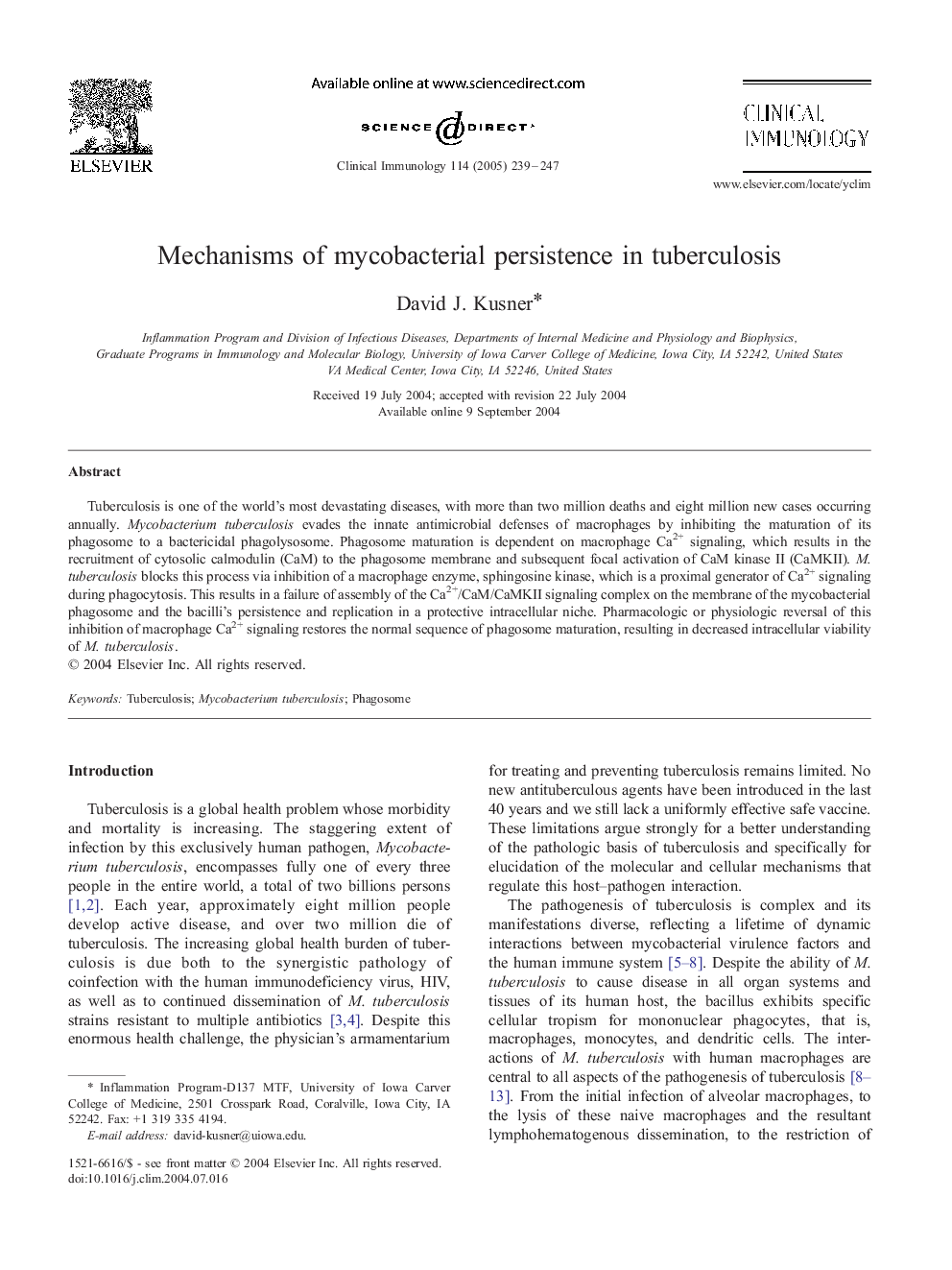| Article ID | Journal | Published Year | Pages | File Type |
|---|---|---|---|---|
| 9236710 | Clinical Immunology | 2005 | 9 Pages |
Abstract
Tuberculosis is one of the world's most devastating diseases, with more than two million deaths and eight million new cases occurring annually. Mycobacterium tuberculosis evades the innate antimicrobial defenses of macrophages by inhibiting the maturation of its phagosome to a bactericidal phagolysosome. Phagosome maturation is dependent on macrophage Ca2+ signaling, which results in the recruitment of cytosolic calmodulin (CaM) to the phagosome membrane and subsequent focal activation of CaM kinase II (CaMKII). M. tuberculosis blocks this process via inhibition of a macrophage enzyme, sphingosine kinase, which is a proximal generator of Ca2+ signaling during phagocytosis. This results in a failure of assembly of the Ca2+/CaM/CaMKII signaling complex on the membrane of the mycobacterial phagosome and the bacilli's persistence and replication in a protective intracellular niche. Pharmacologic or physiologic reversal of this inhibition of macrophage Ca2+ signaling restores the normal sequence of phagosome maturation, resulting in decreased intracellular viability of M. tuberculosis.
Related Topics
Life Sciences
Immunology and Microbiology
Immunology
Authors
David J. Kusner,
